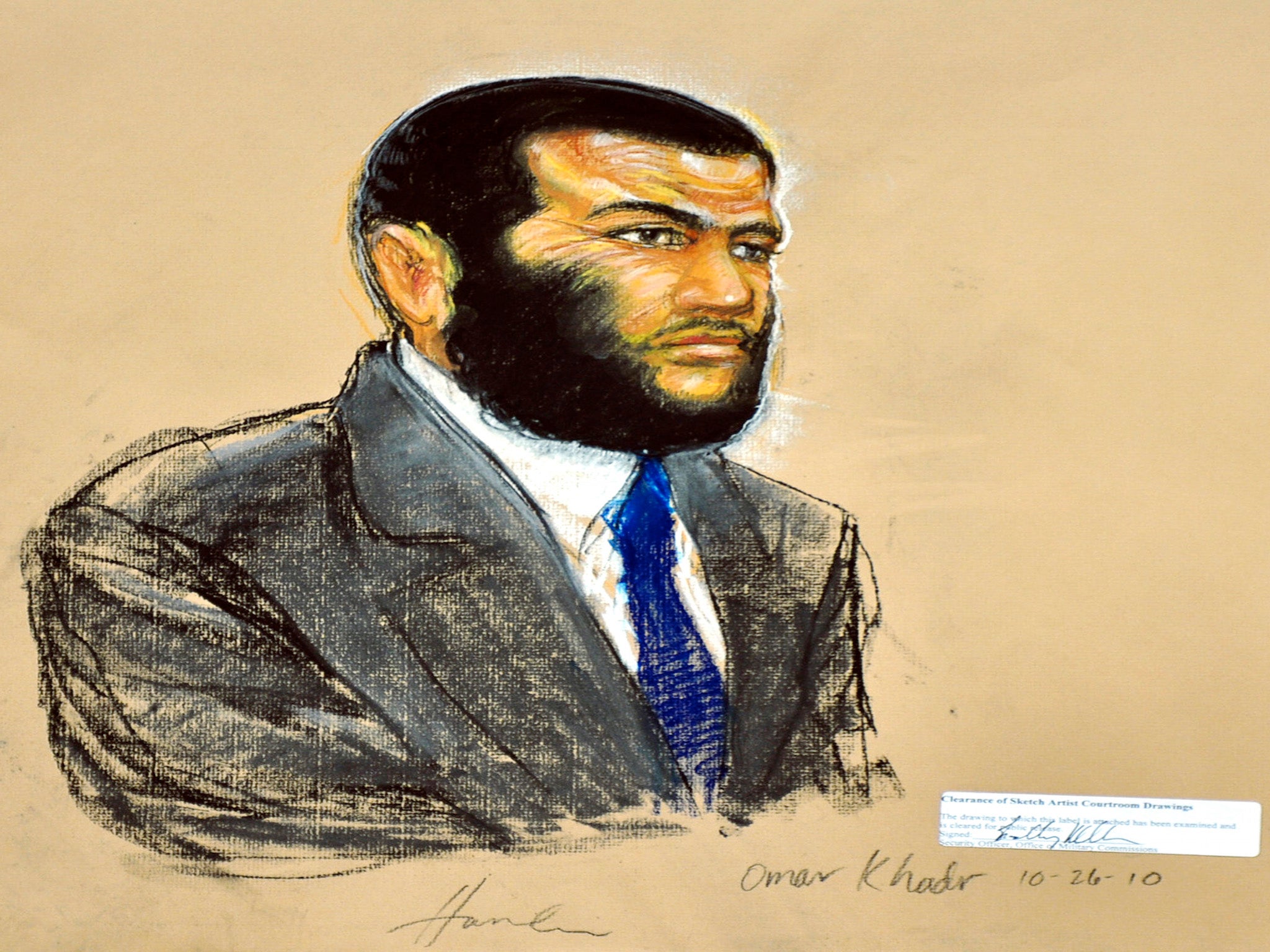Omar Khadr: Court sets free Guantanamo Bay's youngest-ever prisoner
Court imposed tight restrictions on Canadian's movements

Your support helps us to tell the story
This election is still a dead heat, according to most polls. In a fight with such wafer-thin margins, we need reporters on the ground talking to the people Trump and Harris are courting. Your support allows us to keep sending journalists to the story.
The Independent is trusted by 27 million Americans from across the entire political spectrum every month. Unlike many other quality news outlets, we choose not to lock you out of our reporting and analysis with paywalls. But quality journalism must still be paid for.
Help us keep bring these critical stories to light. Your support makes all the difference.
On Thursday afternoon, a Canadian judge granted the release of a former Guantanamo Bay inmate convicted of killing a US soldier.
“Mr Khadr, you're free to go,” Appeals Court Justice Myra Bielby announced to Omar Khadr just 48 hours after Ottawa’s emergency motion to keep the 28-year-old behind bars.
Justice Bielby ruled that the Canadian Government failed to prove that Mr Khadr,28, would cause “irreparable harm” if released.
“Khadr's case is, to say the least, unusual,” she said, the Globe and Mail reported. “There's a first time for everything.”
Formerly Guantanamo Bay’s youngest prisoner, Mr Khadr now faces many restrictions after his release.
He will be required to live with this lawyer Dennis Edney. He must also wear a tracking bracelet, abide by nightly curfews and he may only contact his family via telephone or video conference. The Khadr family has been nicknamed Canada's “first family of terror.”
He will have restricted internet access and may not spend more than $1000 without approval of his supervisor, Vice News said.
Mr Khadr plans to become a part-time student at The King’s University in Edmonton, a small Christian school.
“I hope that people get a chance to know the new me,” he said hours before his release.
In 2010, Mr Khadr agreed to a controversial plea deal for five war crimes, including the killing of a US soldier when he was only 15-years-old. He was the subject of torture and strict interrogation from the moment he was detained in 2002.
He’s told his lawyers that he was used as a “human mop” after urinating on the floor during an interrogation and was denied legal representation for two years after he was first detained.
“The court’s conditional release of Omar Khadr is a start, but it won’t erase all the abuses he suffered during the nearly 13 years he was locked up,” Laura Pitter, senior counsel at Human Rights Watch, said in a statement.
“The Canadian government should make up for its own failings in this case and assist in Khadr’s rehabilitation.”
Mr Khadr has a parole hearing scheduled for June.
Subscribe to Independent Premium to bookmark this article
Want to bookmark your favourite articles and stories to read or reference later? Start your Independent Premium subscription today.
Join our commenting forum
Join thought-provoking conversations, follow other Independent readers and see their replies
Comments